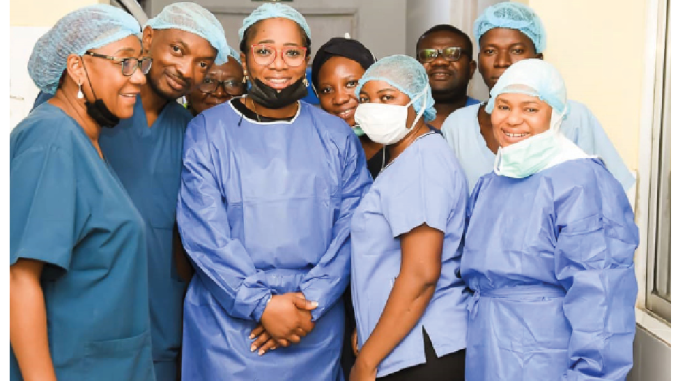
In a bid to strengthen healthcare safety in Nigeria, the federal government and the US Centres for Disease Control and Prevention (CDC) have partnered for robust Infection Prevention and Control (IPC) practices in Nigeria.
Speaking at the inauguration of the National IPC Technical Working Group (TWG), on Monday in Abuja, the minister of Health and Social Welfare, Prof. Ali Pate, emphasised the critical need for effective infection prevention and control measures.
The minister, who was represented by the director – general of the Nigeria Centre for Disease Control (NCDC) Dr Jide Idris, emphasised the critical need for effective infection prevention and control measures.
He said “Healthcare-associated infections (HAIs) pose a significant threat to the health and well-being of Nigerians. Approximately 44 percent of patients admitted to our hospitals acquire at least one HAI during their stay, which results in severe complications and significant economic costs.”
The minister highlighted the importance of strengthening IPC and water sanitation and hygiene (WASH) practices, noting their impact on various healthcare programs, including Maternal and Child Health and Antimicrobial Resistance (AMR).
“Effective IPC and WASH measures are essential for improving Maternal and Child Health, reducing AMR, and enhancing Emergency Preparedness and Response,” he said.
Ad
He hailed the National IPC Program, “Turn Nigeria Orange,” and its successes in setting up IPC programs across tertiary hospitals.
“The establishment of this TWG is a significant step towards addressing key recommendations from the Joint External Evaluation and aligns with our vision of a healthcare system that is accessible, equitable, and responsive,” the Minister added.
Also speaking at the event, the director of public health at the ministry, Chukwuma Anyaike, who spoke on behalf of the NCDC DG, highlighted IPC as the cornerstone of a resilient health system. Anyaike asserted, “IPC is not merely a set of protocols but the bedrock upon which a resilient health system is built. “It serves as our first line of defense against the spread of infectious diseases,” he said.
He referenced past outbreaks to underline the need for robust IPC strategies, stating that major outbreaks like Ebola and COVID-19 have exposed gaps in the country ‘s IPC programs and highlighted the necessity for comprehensive infection prevention and AMR strategies.
On his part, Dr. Farah Husain from the US CDC emphasised the importance of strong IPC programs. He said: “IPC is a vital part of healthcare and public health. Strong IPC programs not only protect patients and reduce infections but also safeguard our healthcare workers and help combat antimicrobial resistance.”
Reflecting on past collaborations, Husain said, “Since the Ebola outbreak in 2014, IPC has been a continuously growing area of government support in Nigeria. We helped develop the IPC curriculum and national guidelines, and launched the national IPC program, leading to the establishment of the Orange Network.”
Husain expressed pride in the ongoing partnership, asserting, “Through this Technical Working Group, we can make Nigeria a model for strong, coordinated, and sustainable IPC. We look forward to our continued partnership to protect the health of all Nigerians.”
Leave a Reply